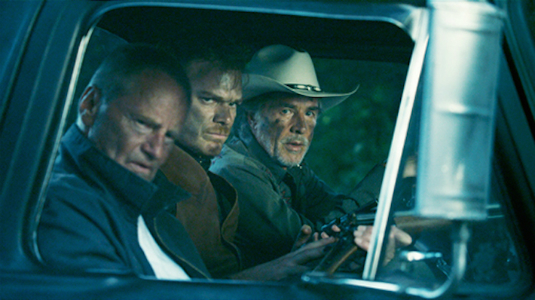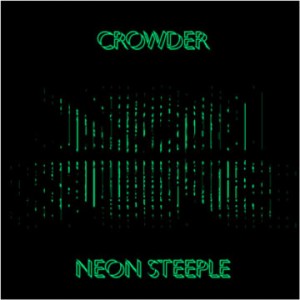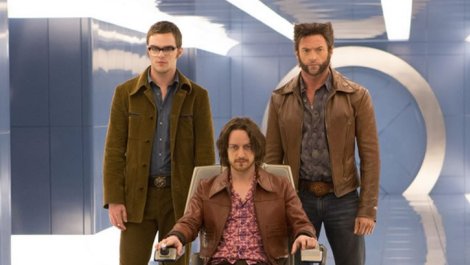
Sometimes the less you know about a movie, the better. That’s the case with Cold in July, the new Indy film directed by Jim Mickle, which makes this review a bit tricky not to share too much. Based on the novel by Joe R. Lansdale, Cold in July begins with action…immediately…with a married couple awakened in the middle of the night to find an intruder. Richard Dane (Michael C. Hall, in a very un-Dexter-like role) shakes while he loads his handgun. He’s not use to using it. Richard finds the intruder in the living room. He becomes startled and shoots the man, Freddy Russell. Startled and shaken, Richard is brought to the police station to speak to Officer Ray Price (Nick Damici) while his wife Anne (Vinessa Shaw) stars home with their young son.
Richard is cleared and returns home to help his wife clean up the mess. He returns to work as the mild mannered owner of a frame shop, but his day is far from normal. News of the event is all over town and he becomes a hero of sorts. A title he isn’t too thrilled to have. The couple purchase new security, purchases a new couch and settle into their new normal. However, it turns out that Freddy has a father (in the form of Sam Shepard), who is not too keen on what just happened, and by the way, he has violent past.
Set in East Texas in the year of 1989, Cold in July is a very smart film. It is rated R for language and violence, both are evident but not over-used in the story. Still, there is more than some movie-goers would like. Ironically, the thriller does have some humor to it. The biggest surprise is Don Johnson who is especially good here and helps you remember that he can be a good actor if he has a good script to work with. Hall plays the “fish out of water” role very realistically bringing some humor as well.
The only real negative I could find with this film is its soundtrack. Apparently it was last on the movie-makers priority list.
Cold in July starts in one direction and then keeps changing lanes as it goes on keeping you guessing all the way through. People you thought were good are actually bad while some of the “bad guys” turn out to be “good guys.” Characters are forced to make decisions that they should never have to make and will make viewers question morality. It all wraps up to a satisfying, yet very sober ending and leaves you with questions like “what is a hero” and “what is the role of a father.”

